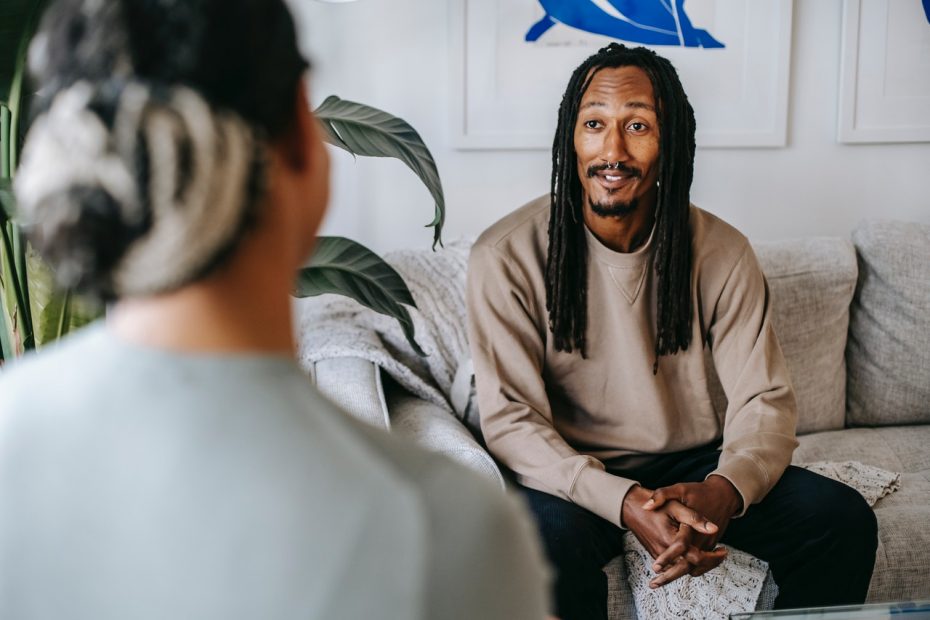Finding the right therapist can seem daunting! In my last article, I wrote a bit about how you might create a shortlist of therapists. Again, this is based largely on if you are seeing a therapist privately, but it may be useful for first meetings with therapists in other settings too. Here are some questions you can ask yourself.
Do I feel I can work with this person?
As I said in my previous article, there’s no one therapist who is right for everyone: it’s a personal thing!
Research suggests that for therapy to be successful, it’s important to be able to establish a “working alliance”. There are lots of positives about therapy, but let’s be honest: therapy can be difficult at times – it can bring up strong feelings, including (at times) “negative” feelings towards therapy, and the therapist. The working alliance is what keeps the therapy going even through tough times, such as if there are misunderstandings, or if things are stuck, or you’re feeling lost. The working alliance is maintained by things like a set of shared goals for therapy, and a bond of trust and mutual respect between the therapist and the client.
If you’re able to afford therapy privately, I suggest you meet at least 3 therapists before making your final decision. Some therapists offer a free initial consultation, but even if they don’t it may be worthwhile paying for an assessment session so you can get a sense of the therapist, and reflect on whether you feel it’s a “good fit”, and that you’ll be able to form a working alliance with them.
Do I feel safe with this person?
Okay, you might be someone who doesn’t feel safe with strangers initially. You might be nervous, cautious, reserved, or even distrustful – these are all natural reactions to opening up about personal issues. Perhaps it isn’t realistic to expect you’ll immediately feel safe or at ease. But does the therapist appear respectful and sensitive of this?
The Mental Health Foundation suggests that a good therapist listens to you, values what you say, has your best interests at heart, and checks you are getting what you want from therapy. Therapists should also be prepared to answer questions about the therapy process, their qualifications, etc. The following websites list some useful questions you can ask a therapist in the initial session:
It’s also important not to feel like you, the client, have to hide anything: unfortunately, many LGBTQ+ and other marginalised people have had this experience in therapy. Therapy should be a safe space where no aspect of your identity is “off-limits”. Nor should you feel like you have to “educate” the therapist about your culture, lifestyle, or identity.
Do I feel like this therapist offers the right balance of support and challenge?
A lot of clients say they want to feel challenged in therapy, for various reasons. It’s important that your therapist is able to challenge you if needed, but therapy doesn’t always have to be confronting or fast-paced to be effective. Particularly if you had had a hard time, it’s okay to want to be approached gently at first, and to feel supported. Be honest with yourself! If you want to take your time and move forward gently, that’s alright too.
Does anything just not feel right?
As a qualified therapist, I have had my fair share of personal therapy. When I have met a therapist and something “just doesn’t feel right”, it’s usually turned out that this isn’t the right therapist for me! On the other hand, finding the right therapist – someone who provides a space to be valued, supported and empowered – can often feel like a huge relief. I can help to listen to your gut, and trust your instinct.
I’ll say it again: there’s no such thing as a therapist who is right for everyone: it’s a personal thing!
I believe that the same applies for seeing a therapist in any other setting – although it may be trickier to change therapists, if you really don’t feel comfortable working with that therapist going forward, I would suggest you speak to the organisation (whether it’s an NHS service or a charity etc.) to discuss your options. If necessary, you can contact your local Patient Advice and Liaison Service (PALS) if you are not being listened to.
Of course, all registered therapists must abide by their organisation’s code of ethics. Unethical therapist behaviour is rare, so while I would not wish to put anyone off seeking therapy, I do want to highlight that there are processes in place to protect you. If something happens that you feel is inappropriate, you can discuss and raise your concern’s through the BACP’s Ask Kathleen Service.
Don’t give up!
It can feel a bit lonely when you’re starting out, but there’s lots of great guidance online, and it can be helpful to talk to friends and family if you’re struggling to choose, but ultimately you are the best judge! Perseverance often pays off, and finding the right therapist can be life-changing! Good luck!

Pingback: Finding a Therapist Part One – Daniel Winstanley
Comments are closed.